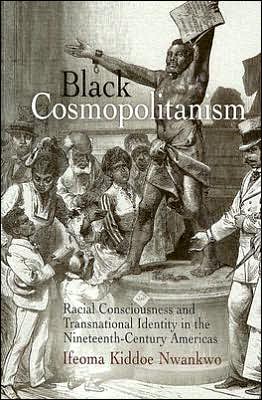

 |

|

Sold Out
Book Categories |
| Pt. 1 | The making of a race (man) | 23 |
| 1 | The view from above : Placido through the eyes of the Cuban colonial government and white abolitionists | 29 |
| 2 | The view from next door : Placido through black abolitionists' eyes | 48 |
| Pt. 2 | Both (race) and (nation)? | 81 |
| 3 | On being black and Cuban : race, nation, and romanticism in the poetry of Placido | 87 |
| 4 | "We intend to stay here" : the international shadows in Frederick Douglass's representations of African American community | 114 |
| 5 | "More a Haitian than an American" : Frederick Douglass and the black world beyond the United States | 129 |
| Pt. 3 | Negating nation, rejecting race | 153 |
| 6 | A slave's cosmopolitanism : Mary Prince, a West Indian slave, and the geography of identity | 157 |
| 7 | Disidentification as identity : Juan Francisco Manzano and the flight from blackness | 187 |
Login|Complaints|Blog|Games|Digital Media|Souls|Obituary|Contact Us|FAQ
CAN'T FIND WHAT YOU'RE LOOKING FOR? CLICK HERE!!! X
 You must be logged in to add to WishlistX
 This item is in your Wish ListX
 This item is in your CollectionBlack Cosmopolitanism: Racial Consciousness and Transnational Identity in the Nineteenth-Century Americas
X
 This Item is in Your InventoryBlack Cosmopolitanism: Racial Consciousness and Transnational Identity in the Nineteenth-Century Americas
X
 You must be logged in to review the productsX
 X
 X

Add Black Cosmopolitanism: Racial Consciousness and Transnational Identity in the Nineteenth-Century Americas, What are the perceived differences among African Americans, West Indians, and Afro Latin Americans? What are the hierarchies implicit in those perceptions, and when and how did these develop? For Ifeoma Nwankwo the turning point came in the wake of the Ha, Black Cosmopolitanism: Racial Consciousness and Transnational Identity in the Nineteenth-Century Americas to the inventory that you are selling on WonderClubX
 X

Add Black Cosmopolitanism: Racial Consciousness and Transnational Identity in the Nineteenth-Century Americas, What are the perceived differences among African Americans, West Indians, and Afro Latin Americans? What are the hierarchies implicit in those perceptions, and when and how did these develop? For Ifeoma Nwankwo the turning point came in the wake of the Ha, Black Cosmopolitanism: Racial Consciousness and Transnational Identity in the Nineteenth-Century Americas to your collection on WonderClub |